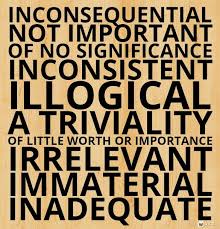 Sometimes, life with MS feels just like that pesky game – the bane of my life when The Teenager played it for hours on end – sitting at the wheel of a very fast car, out of control, driving around with no regard for anyone else.
Sometimes, life with MS feels just like that pesky game – the bane of my life when The Teenager played it for hours on end – sitting at the wheel of a very fast car, out of control, driving around with no regard for anyone else.
MS is such an all-consuming illness, affecting every area of our lives.
Six years after being diagnosed, I still feel as if I am shaking the branches of a tree, seeing what falls out. What have I forgotten to deal with?
Serious illnesses are often portrayed as ‘monsters’, ‘the demon’, an ‘enemy’, something external, something to be conquered. If you’re ‘lucky’, you may be in the clear after five years.
But what happens when the illness is within us? And will last a lifetime? Our very own immune system misreading their specific directions, wearing down, and ultimately attacking us?
Welcome to the wonderful world with MS, where not only do you lose friends, perhaps your job, or your partner, but also your own body has decided to attack you?
It’s a lot to deal with, and it’s personal.
So, perhaps you can deal with being sacked for having MS, however unfair it is. You can mourn the loss of a partner who couldn’t face an unpredictable future. You can talk sensitively with your son, explaining everything in gentle terms.
I won’t die, like your grandfather. I had great treatment. I’m trucking on (my alternative to the hideous ‘fighting’) with MS. I’m still working, I’m still here. I’m even still studying. It’s all fine.
Yet that kernal of auto-immune is always present. How best to prevent or delay this? Massive doses of Vitamin D? Munch on almonds every day? Yoghurt?
A restrictive diet, full of courgettes and not much else? Pasting a smile on every single day, and blessing it for allowing me another day where I can carry on with life, however limited?
Or. The alternative. Questioning everything and accepting nothing. Pushing myself to the absolute limit, to prove a point.
When this illness is within us, where do we go to escape?

 There are certain expectations placed upon you when you suddenly become ‘disabled’.
There are certain expectations placed upon you when you suddenly become ‘disabled’. Well.
Well. Six years ago on Friday 25th May, it’ll be my six year MS-versary.
Six years ago on Friday 25th May, it’ll be my six year MS-versary. There’s an insightful documentary on Netflix, ‘End Game’, about end-of-life care. It’s a beautifully moving film and I highly recommend it.
There’s an insightful documentary on Netflix, ‘End Game’, about end-of-life care. It’s a beautifully moving film and I highly recommend it.